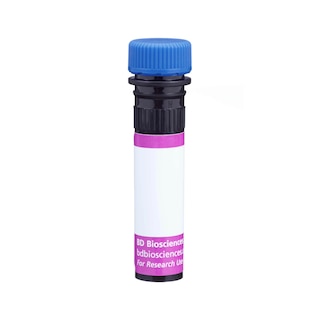-
Reagents
- Flow Cytometry Reagents
-
Western Blotting and Molecular Reagents
- Immunoassay Reagents
-
Single-Cell Multiomics Reagents
- BD® OMICS-Guard Sample Preservation Buffer
- BD® AbSeq Assay
- BD® OMICS-One Immune Profiler Protein Panel
- BD® Single-Cell Multiplexing Kit
- BD Rhapsody™ ATAC-Seq Assays
- BD Rhapsody™ Whole Transcriptome Analysis (WTA) Amplification Kit
- BD Rhapsody™ TCR/BCR Next Multiomic Assays
- BD Rhapsody™ Targeted mRNA Kits
- BD Rhapsody™ Accessory Kits
-
Functional Assays
-
Microscopy and Imaging Reagents
-
Cell Preparation and Separation Reagents
-
- BD® OMICS-Guard Sample Preservation Buffer
- BD® AbSeq Assay
- BD® OMICS-One Immune Profiler Protein Panel
- BD® Single-Cell Multiplexing Kit
- BD Rhapsody™ ATAC-Seq Assays
- BD Rhapsody™ Whole Transcriptome Analysis (WTA) Amplification Kit
- BD Rhapsody™ TCR/BCR Next Multiomic Assays
- BD Rhapsody™ Targeted mRNA Kits
- BD Rhapsody™ Accessory Kits
- United States (English)
-
Change country/language
Old Browser
This page has been recently translated and is available in French now.
Looks like you're visiting us from {countryName}.
Would you like to stay on the current country site or be switched to your country?




Two-parameter flow cytometric analysis of CD15s expression on human peripheral blood leucocytes. Whole blood was stained with either BD Horizon™ BV421 Mouse IgM, κ Isotype Control (Cat. No. 562704; Left Panel) or BD Horizon™ BV421 Mouse Anti-Human CD15s antibody (Cat. No. 563912; Right Panel). Erythrocytes were lysed with BD FACS Lysing Solution (Cat. No. 349202). Two-parameter dot plots show the correlated expression patterns of CD15s (or Ig Isotype control staining) versus side light-scatter characteristics for gated events with the light-scatter characteristics of intact leucocytes. Flow cytometric analysis was performed using a BD™ LSR II Flow Cytometer System.


BD Horizon™ BV421 Mouse Anti-Human CD15s

Regulatory Status Legend
Any use of products other than the permitted use without the express written authorization of Becton, Dickinson and Company is strictly prohibited.
Preparation And Storage
Product Notices
- This reagent has been pre-diluted for use at the recommended Volume per Test. We typically use 1 × 10^6 cells in a 100-µl experimental sample (a test).
- An isotype control should be used at the same concentration as the antibody of interest.
- Caution: Sodium azide yields highly toxic hydrazoic acid under acidic conditions. Dilute azide compounds in running water before discarding to avoid accumulation of potentially explosive deposits in plumbing.
- Source of all serum proteins is from USDA inspected abattoirs located in the United States.
- Pacific Blue™ is a trademark of Molecular Probes, Inc., Eugene, OR.
- Brilliant Violet™ 421 is a trademark of Sirigen.
- For fluorochrome spectra and suitable instrument settings, please refer to our Multicolor Flow Cytometry web page at www.bdbiosciences.com/colors.
- Please refer to www.bdbiosciences.com/us/s/resources for technical protocols.
Companion Products




The CSLEX1 monoclonal antibody specifically binds to CD15s. This anti-Sialyl-Le[x] monoclonal antibody is specific for the α2-3 sialosylated form of lacto-N-fucopentaose III, sialyl Lex (Sle[x]). Sle[x] is expressed on granulocytes, monocytes and both normal and tumor cells of diverse origin. It has been shown to be a ligand for both endothelial leukocyte adhesion molecule-1 (ELAM-1 or E-selectin), and granule membrane protein-140 (GMP-140 or P-selectin).
The antibody was conjugated to BD Horizon™ BV421 which is part of the BD Horizon™ Brilliant Violet™ family of dyes. With an Ex Max of 407-nm and Em Max at 421-nm, BD Horizon™ BV421 can be excited by the violet laser and detected in the standard Pacific Blue™ filter set (eg, 450/50-nm filter). BD Horizon™ BV421 conjugates are very bright, often exhibiting a 10 fold improvement in brightness compared to Pacific Blue™ conjugates.

Development References (11)
-
Corral L, Singer MS, Macher BA, Rosen SD. Requirement for sialic acid on neutrophils in a GMP-140 (PADGEM) mediated adhesive interaction with activated platelets. Biochem Biophys Res Commun. 1990; 172(3):1349-1356. (Biology). View Reference
-
Dransfield I, Stocks SC, Haslett C. Regulation of cell adhesion molecule expression and function associated with neutrophil apoptosis. Blood. 1995; 85(11):3264-3273. (Clone-specific: Flow cytometry). View Reference
-
Fukushima K, Hirota M, Terasaki PI. Characterization of sialosylated Lewisx as a new tumor-associated antigen. Cancer Res. 1984; 44(11):5279-5285. (Immunogen: Cytotoxicity, ELISA, Fluorescence microscopy, Immunofluorescence, Immunohistochemistry, Radioimmunoassay). View Reference
-
Phillips ML, Nudelman E, Gaeta FC, et al. ELAM-1 mediates cell adhesion by recognition of a carbohydrate ligand, sialyl-Lex. Science. 1990; 250(4984):1130-1132. (Biology). View Reference
-
Picker LJ, Warnock RA, Burns AR, Doerschuk CM, Berg EL, Butcher EC. The neutrophil selectin LECAM-1 presents carbohydrate ligands to the vascular selectins ELAM-1 and GMP-140. Cell. 1991; 66(5):921-933. (Biology). View Reference
-
Polley MJ, Phillips ML, Wayner E, et al. CD62 and endothelial cell-leukocyte adhesion molecule 1 (ELAM-1) recognize the same carbohydrate ligand, sialyl-Lewis x. Proc Natl Acad Sci U S A. 1991; 88(14):6224-6228. (Biology). View Reference
-
Rice GE, Bevilacqua MP. An inducible endothelial cell surface glycoprotein mediates melanoma adhesion. Science. 1989; 246(4935):1303-1306. (Biology). View Reference
-
Rice GE, Gimbrone MA, Bevilacqua MP. Tumor cell-endothelial interactions. Increased adhesion of human melanoma cells to activated vascular endothelium. Am J Pathol. 1988; 133(2):204-210. (Biology). View Reference
-
Walz G, Aruffo A, Kolanus W, Bevilacqua M, Seed B. Recognition by ELAM-1 of the sialyl-Lex determinant on myeloid and tumor cells. Science. 1990; 250(4984):1132-1135. (Biology). View Reference
-
Zetter BR. The cellular basis of site-specific tumor metastasis. N Engl J Med. 1990; 322(9):605-612. (Biology). View Reference
-
Zhou Q, Moore KL, Smith DF, Varki A, McEver RP, Cummings RD. The selectin GMP-140 binds to sialylated, fucosylated lactosaminoglycans on both myeloid and nonmyeloid cells. J Cell Biol. 1991; 115(2):557-564. (Clone-specific: ELISA). View Reference
Please refer to Support Documents for Quality Certificates
Global - Refer to manufacturer's instructions for use and related User Manuals and Technical data sheets before using this products as described
Comparisons, where applicable, are made against older BD Technology, manual methods or are general performance claims. Comparisons are not made against non-BD technologies, unless otherwise noted.
For Research Use Only. Not for use in diagnostic or therapeutic procedures.